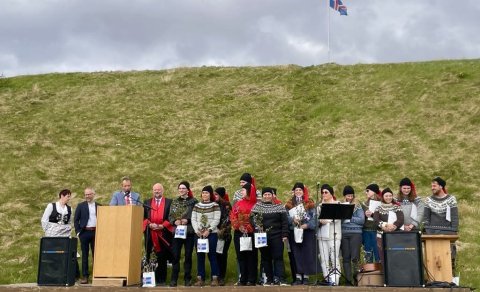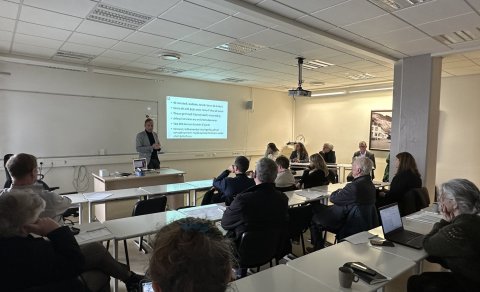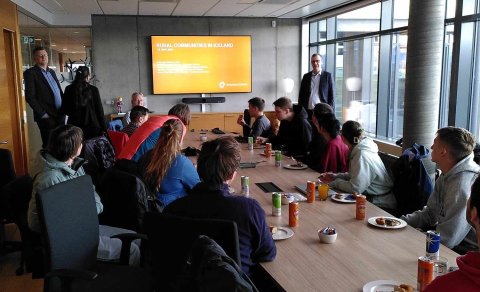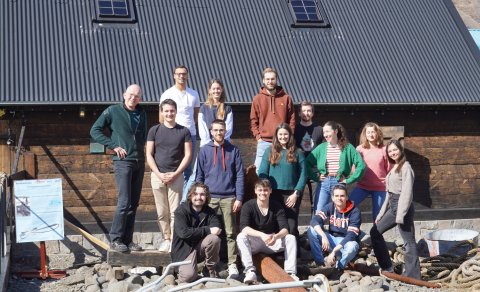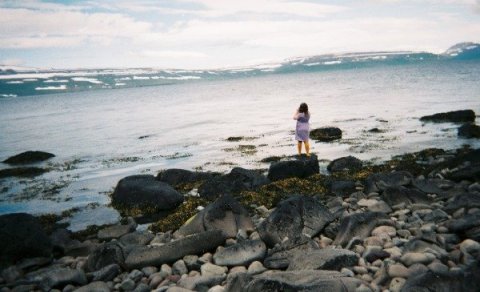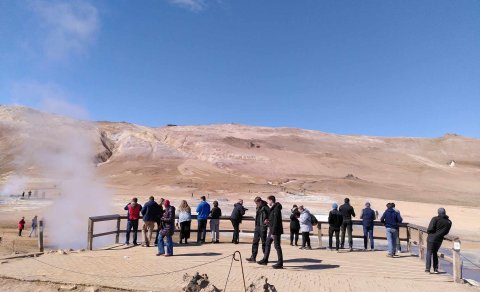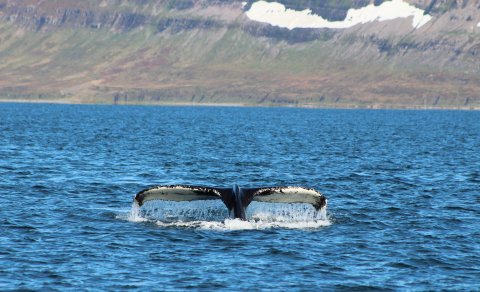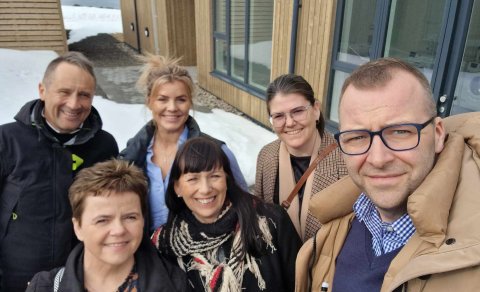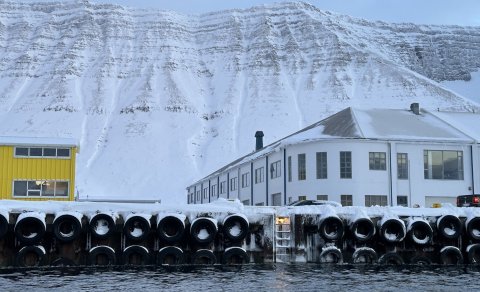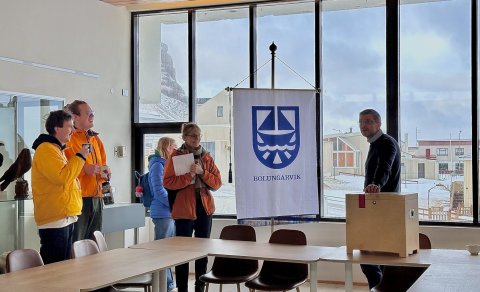18.06.2024
The convocation was held yesterday on the national day of Iceland at Hrafnseyri where it was embedded in the national day’s festivities. With the convocation we celebrated the graduation of the students from the master’s programmes at UW, as well the graduation of distance learning students in the Westfjords. We had lovely weather and a very pleasant convocation celebration. As per usual, there was a cake buffet, soup, a music performance and the graduation ceremony. Graduates received their diploma from Eyjólfur Guðmundsson Rector of the University of Akureyri. Students also received a knitted diploma hat and a small tree that many graduates have planted at the hillside behind the church at Hrafnseyri, an area that is starting to resemble a growing forest of saplings, bigger each year.
24.05.2024
Today, the general meeting of UW took place. Peter Weiss, director of UW presented the annual report for 2023, which included an overview of positions, master's programs, marketing, distance learning, research and collaboration and much more at UW.
21.05.2024
We recently wrote about UW’s summer school, which is an international cooperation. Each year, UW visits one of the partnering countries and learns about their approaches on "smart shrinking" as a development approach for de-populating regions. This year UW is the hosting country. The group, which consists of seven UW students in the Coastal Communities and Regional Development master's program, Matthias Kokorch academic director, and 24 students from Latvia, Lithuania, Estonia, and Finland, are currently travelling in north-Iceland, visiting small municipalities.
17.05.2024
There have been many new faces at UW in the past few days. 13 students from SeaTech, the French school of engineering, are interns at UW for a total of 17 weeks. The interns are master’s students in marine engineering and are undergoing training here under the guidance of Björn Erlingsson.
16.05.2024
On Friday, May 17th, the permanent online exhibition of the SeaGirls project opens. The SeaGirls project gave girls in Iceland disposable film cameras for the summer to understand their relationships and perspectives of the ocean. This project was a collaboration between the University Centre of the Westfjords, Vestfjörður Regional Museum, Hversdagsafnið and funding was provided from Rannís Nýsköpunarsjóður and Uppbyggðingarsjóður as part of the growing international dialogue on gender and the ocean.
15.05.2024
UW is part of an international cooperation, which organizes annual summer schools. Each year we visit one of the partnering countries and learn about their approaches on "smart shrinking" as a development approach for de-populating regions. "smart shrinking" is an approach that accepts depopulation and employs it actively to create smaller but better living places.This year UW is the hosting country and the group, seven CRD students, Matthias, and 24 students from Latvia, Lithuania, Estonia, and Finland, has been in Akureyri since Sunday.
26.04.2024
Two UW students, Benedek Regoczi and Laura Lyall, have received a grant from Rannís, the student innovation fund, for a total of 2.040.000 ISK. Brack Hale, program director of the Coastal Marine Management master’s program applied for the grant on behalf of the University Centre of the Westfjords for the project “Monitoring whales to inform responsible shipping.” The project will be in collaboration with Borea, Sjóferðir, Húsavík, Vestmannaeyjar, and Whale Wise.
18.04.2024
On Thursday morning staff of Icelandic Regional Development Institute (Byggðastofnun) had a look on University Centre of the Westfjords' recently inaugurated new student dormitory. Although Byggðastofnun had not been involved in financing this development, visiting staff showed it a lot of interest, as this is indeed one way to foster regional development.
15.04.2024
It's thesis defense season again at the University Centre of the Westfjords. The first defense starts on Wednesday 17th of April. During this defense season 9 students will defend their theses in the coming weeks with many interesting topics. The defenses are open to the public and people are also invited to join through zoom. The links can be found in the table below.
20.03.2024
Recently, students taking the “Migration and Population Development” course at UW got the chance to have a meeting with Jón Páll, the mayor of Bolungarvík. Bolungarvík is a coastal town, 15 minutes away from Ísafjörður. They were shown around the municipality building and got to peek into the office of the Natural Science Institute of the Westfjords, Blámi, and the Research Centre of the University of Iceland housed in the same building. After the tour, they had an interesting talk in the mayor's office about the town’s population development and investments, and got an informative presentation. Jón Páll introduced them to a project called “Bolungarvík 1000+” which aimed to increase the population of Bolungarvík from 950 inhabitants to over 1000. It was a response to pressure that was put on small communities with under 1000 inhabitants to merge. Jón Páll said that Bolungarvík is a very independent town, and they didn’t consider the option to merge with another municipality and decided instead to increase the population to over 1000 people. They were successful and on April 13th 2023 the population reached 1000 inhabitants. He said they did this by investing and putting effort into three big pillars.
